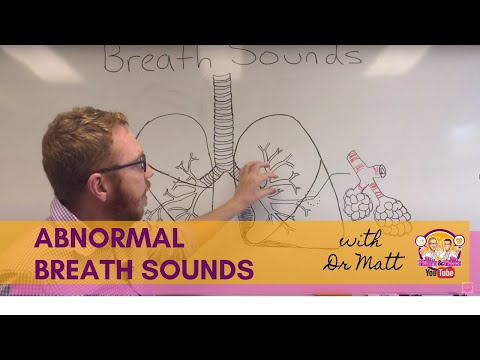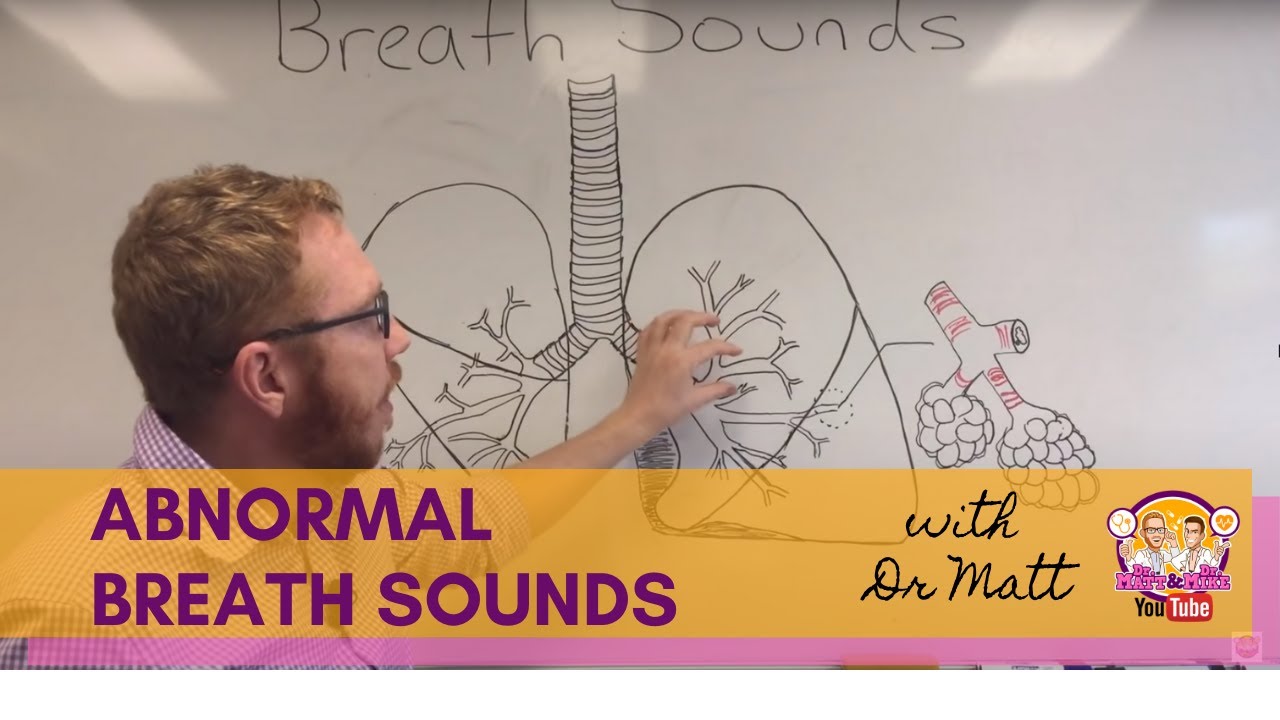Noisy breathing in adults can be caused by various factors that can leave you feeling intrigued. One potential cause is obstructive sleep apnea, a condition where the airway becomes partially or completely blocked during sleep, leading to loud and disruptive breathing patterns. Another possible culprit is chronic obstructive pulmonary disease (COPD), a progressive lung disease that can cause wheezing and other noisy breathing sounds due to the narrowing of the airways. Asthma, a chronic inflammatory disease of the airways, can also contribute to noisy breathing in adults, particularly during asthma attacks when the airways become constricted and produce whistling or wheezing sounds. Other factors, such as allergies, respiratory infections, or smoking, can further exacerbate noisy breathing. Understanding the causes of noisy breathing in adults is crucial as it can be a symptom of an underlying health issue that requires medical attention. Seeking timely diagnosis and appropriate treatment can alleviate the discomfort and potential complications associated with noisy breathing, promoting better respiratory health and overall well-being.

Causes of Noisy Breathing in Adults
| Causes | Description |
|---|---|
| Upper Respiratory Infections | Common cold, sinusitis, or bronchitis can cause inflammation and mucus accumulation in the upper airways, leading to noisy breathing. |
| Allergies | Allergic reactions to pollen, dust mites, pet dander, or certain foods can cause nasal congestion and trigger noisy breathing. |
| Nasal Polyps | Noncancerous growths in the nasal cavity can obstruct airflow and cause turbulence, resulting in audible breathing sounds. |
| Obstructive Sleep Apnea | A sleep disorder characterized by repetitive partial or complete blockage of the upper airway during sleep, leading to loud snoring and gasping for breath. |
| Asthma | Chronic inflammation of the airways can cause wheezing and noisy breathing due to narrowed passages and increased mucus production. |
| Chronic Obstructive Pulmonary Disease (COPD) | A progressive lung disease, including chronic bronchitis and emphysema, that leads to airflow obstruction and noisy breathing. |
| Laryngitis | Inflammation of the larynx can cause hoarseness and noisy breathing due to the vocal cords not fully closing during inhalation or exhalation. |
| Tumors or Growths | Benign or malignant growths in the airways, such as vocal cord nodules or lung tumors, can obstruct airflow and produce abnormal breathing sounds. |
Breath Sounds Gone Wild: Unraveling the Respiratory System’s Abnormalities
What Causes Noisy Breathing in Adults?
Quiet, effortless breathing is something most adults take for granted. However, for some individuals, the simple act of breathing can become loud and obtrusive. Noisy breathing, also known as stridor, can manifest in various forms and may indicate an underlying health issue. In this article, we will explore five potential causes of noisy breathing in adults.
Anatomy and Physiology
Anatomical abnormalities or changes in the physiological processes of the respiratory system can trigger noisy breathing. These alterations can occur in the nasal passages, throat, or lungs. For example, a deviated septum, nasal polyps, or enlarged tonsils can obstruct the airway, resulting in audible breathing sounds. Additionally, conditions like asthma, chronic obstructive pulmonary disease (COPD), or bronchitis can cause inflammation and narrowing of the airways, leading to noisy breathing.
Upper Respiratory Infections
Upper respiratory infections are a common cause of noisy breathing in adults. Conditions such as the common cold, flu, or sinusitis can lead to congestion and inflammation in the nasal passages. As a result, the airway becomes partially blocked, and breathing may become audible. These infections often come with other symptoms such as coughing, sneezing, or a runny nose.
Vocal Cord Dysfunction
Vocal cord dysfunction (VCD) is a condition that affects the movement of the vocal cords during breathing. In individuals with VCD, the vocal cords may close instead of opening during inhalation, obstructing the airflow. This closure creates a high-pitched, wheezing sound. VCD can be triggered by stress, anxiety, or exercise. Proper diagnosis and treatment by a medical professional are crucial for managing this condition.
Obstructive Sleep Apnea
Obstructive sleep apnea is a sleep disorder characterized by repetitive pauses in breathing during sleep. These pauses, called apneas, occur when the throat muscles relax and block the airway. When breathing resumes, it can be accompanied by loud, disruptive noises, including snoring or gasping for air. Obstructive sleep apnea can have serious health consequences and should be evaluated by a sleep specialist.
Medication Side Effects
Some medications can cause side effects that contribute to noisy breathing. For instance, certain blood pressure medications, such as beta-blockers or angiotensin-converting enzyme (ACE) inhibitors, can cause a dry cough. This cough can lead to throat irritation and inflammation, resulting in noisy breathing. If you suspect that your medication is causing your breathing difficulties, consult with your healthcare provider to explore alternative options.
Conclusion
Noisy breathing in adults can be caused by a variety of factors, from anatomical abnormalities to respiratory infections or medication side effects. Identifying the underlying cause is essential for appropriate treatment and management. If you experience persistent or concerning symptoms related to noisy breathing, it is important to seek medical attention to determine the cause and receive appropriate care.
Remember, while this article provides valuable information, it is not a substitute for professional medical advice. Always consult with a healthcare professional for an accurate diagnosis and personalized treatment plan.

